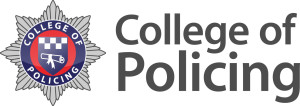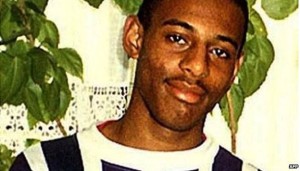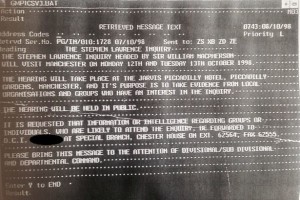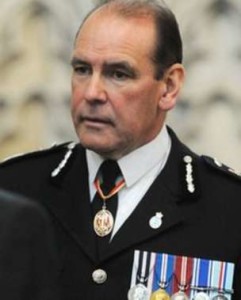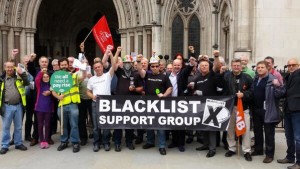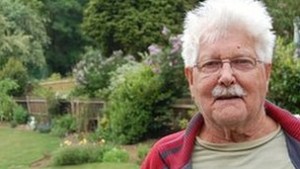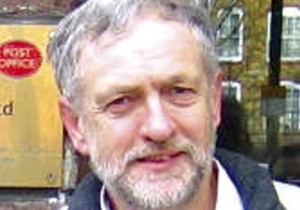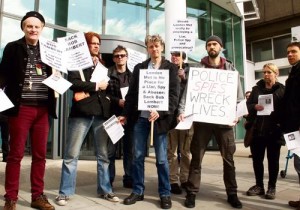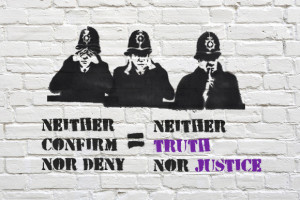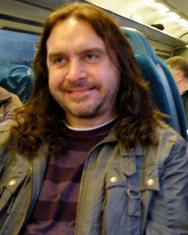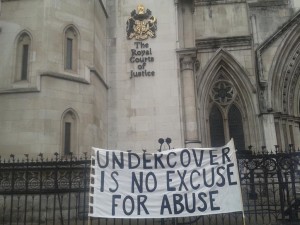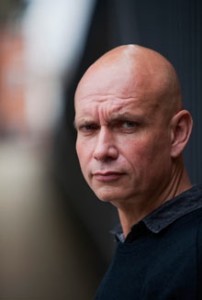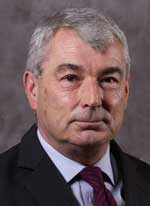Our Draft Terms for Public Inquiry
Formed in late 2013, the Campaign Opposing Police Surveillance (COPS) is a campaign in its own right and also something of an umbrella group for people targeted by the political undercover police units.
Participants include:
– Members of environmental groups who were spied on, including people who exposed officers
– Members of justice campaigns for those who died at the hands of police who were spied on
– Members of anti-racist groups who were spied on
– Members of political parties who were spied on, including the Socialist Workers Party and Socialist Party (formerly Militant Labour)
– People who were on the Consulting Association’s construction industry blacklist, including workers and ‘greenlist’ environmentalists whose files contained details that are likely to have come from police
– Lawyers representing what is, as far as we know, everyone bringing a case for personal relationships with undercover officers
– Lawyers representing a large number of people whose convictions were a miscarriage of justice due to the undisclosed evidence of undercover officers
– Lawyers representing individuals, families and organisations involved in justice campaigns surrounding deaths in custody and/or police misconduct
– Lawyers representing a family whose dead child’s identity was stolen by an undercover officer
– Lawyers representing people on the construction industry blacklist
DRAFT TERMS OF REFERENCE FOR INQUIRY UNDER THE INQUIRIES ACT
To inquire into, and make recommendations about, the practices, ethics, governance and impact of undercover policing in the UK between 1968 and 2014, and the Human Rights implications of the same, with special reference to the oversight, governance and conduct of undercover officers in the Special Demonstration Squad, the National Public Order Intelligence Unit, the National Extremism Tactical Co-ordination Unit (NETCU) and other political policing units, in particular:
1. The activities of undercover officers and informants in political/social justice campaigns, including:
a) The forming of intimate and sexual relationships with people in or associated with target campaign groups and the effects of those relationships on those involved and their families and close friends;
b) The fathering of children as a consequence of forming such relationships and the long term implications for the mother, children and others.
c) The disproportionate effect on women of the tactics used and the extent to which this reflects individual and/or institutionalised sexism.
d) Issues raised by undercover officers living in the homes of political activists.
e) The spying on and disruption of Non Governmental Organisations (NGOs) and other activists involved in political campaigns, including the use of informants.
f) The potential impact of undercover officers shaping, disrupting or undermining political activity, including acting as agent provocateurs.
g) The sharing of information between police and private investigators or other companies.
h) The role of undercover officers in the exchange of information about construction workers and political and Trade Union activists with private companies including the Consulting Association, and the creation of databases about individuals.
i) The role of UK undercover officers in political protests or meetings abroad.
j) The use of the identities of dead children by undercover officers.
k) The ongoing risks to members of the public during and after the deployment ends, arising from.
i) the psychological damage caused to undercover officers by lengthy periods of deployment and living with dual identities.
ii) the officers influence on and intimate knowledge of those they have been monitoring.
2. The activities of undercover officers, informants and victim/family liaison/witness support and protection officers in relation to:
a) the investigations into the murder of Stephen Lawrence and the attack on Duwayne Brooks and subsequent related inquiries.
b) those bereaved at the hands of the police and family support campaigns.
c) those challenging the efficacy of police investigations eg. in relation to the deaths or assaults of loved ones.
3. Implications for the Justice system of the activities of undercover officers including:
a) failures to disclose evidence about undercover work to prosecution, Courts or parties; disclosure failures in civil cases; failure to disclose to the Macpherson and other Inquiries.
b) undercover officers and informants committing criminal offences or inciting others to do so.
c) undercover officers participating in the criminal justice system (as person arrested, defendant or witness) using a false identity.
d) breaches of legal professional privilege by undercover officers, and the improper collection and retention of information about lawyers acting for protestors or campaigners.
e) decision making and role of the Crown Prosecution Service in respect of the activities of undercover officers.
4. To inquire into the efficacy of systems for supervising, authorising, debriefing and decision-making in relation to undercover policing, including those operated by the MPS, ACPO, the Home Office, and international cooperation between states, and the extent to which governance systems and policies caused, obfuscated or failed to prevent any abuses.
5. To inquire into the extent to which the current legal framework and policies governing authorisation of, oversight of and complaints about undercover police operations has failed, including how the use of “Neither Confirm Nor Deny” prevents scrutiny of abusive and / or potentially unlawful police activity and of accountability relating to the same.
6. And to make recommendations regarding:
a) The appropriateness of undercover policing in social justice and political campaign groups.
b) The conduct of, oversight of and ethical framework for any future undercover police work to safeguard the rights of individuals and ensure the highest professional and ethical standards and compliance with equalities legislation.
c) Changes to the legal and policy framework governing undercover policing, particularly the Regulation of Investigatory Powers Act and the operation of the Investigatory Powers Tribunal.
d) Changes to the official status and accountability of international policing networks such as the European Co-operation Group on Undercover Activities.


